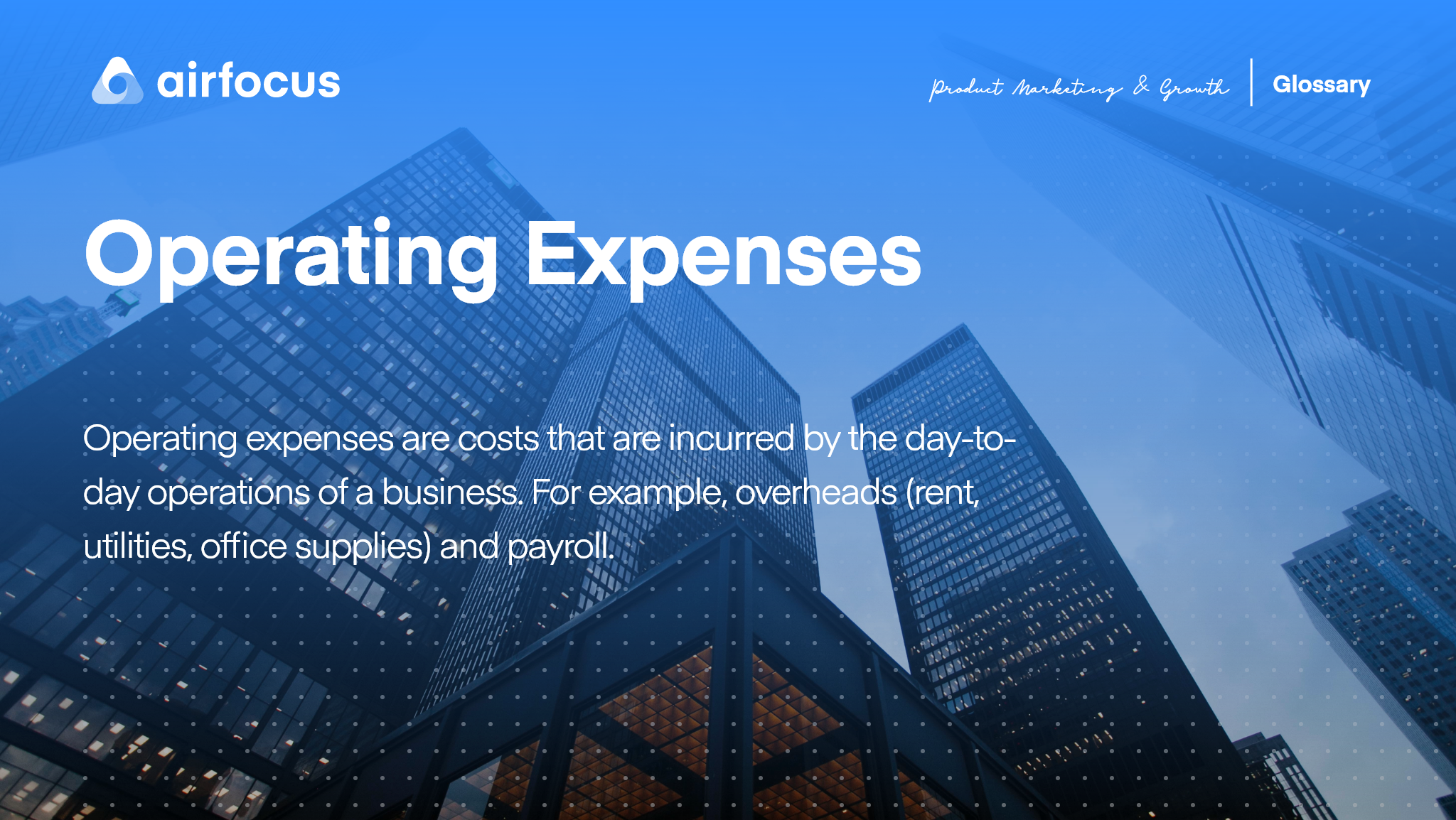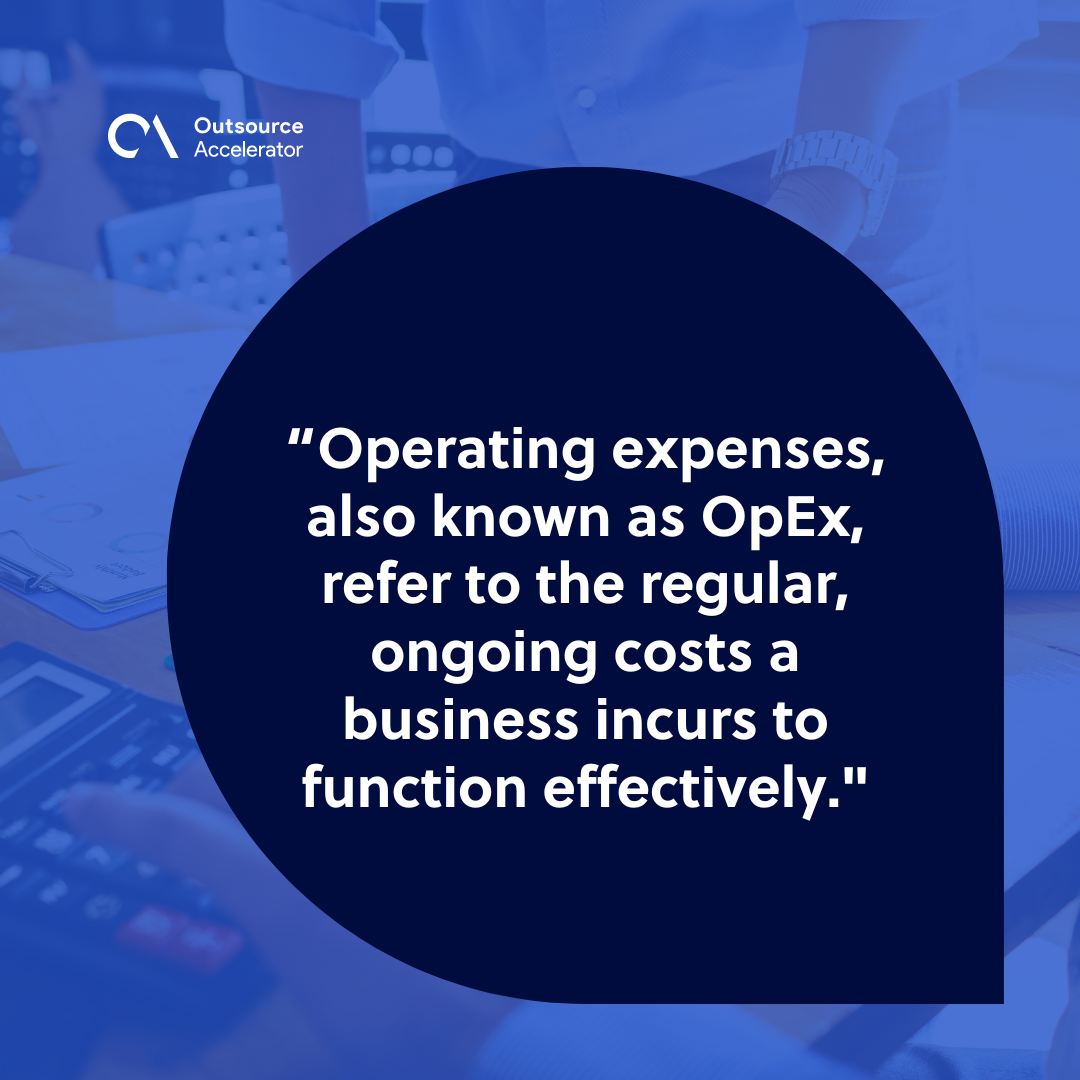
Keep in mind that capital expenditures, such as purchasing equipment or a building, are not considered operating expenses and are treated differently for tax purposes. They are usually depreciated or amortized over a period of time, rather than being fully deductible in the year the expense is incurred. In conclusion, understanding the components of operating expenses is crucial for businesses to effectively manage their finances. A clear insight into these costs helps businesses make informed decisions and implement strategies to optimize their resources and drive growth. This formula highlights the relationship between a company’s revenue, operating income, and cost of goods sold/sales. By subtracting operating income and COGS/COS from revenue, we can determine the total amount spent on operating expenses.
Impact on Financial Ratios and Analysis
By categorizing and analyzing your operating expenses, you’ll gain valuable insights into your business’s financial health. This knowledge equips you to make informed decisions that drive growth and profitability. We’ll explore the various components of operating expenses, including fixed, variable, and semi-variable costs. We’ll explore operating expenses definition common examples, calculation methods, and strategies for managing these expenses effectively. An overhead expense is a business expense not directly attributed to creating a product or service. Some common examples of overhead costs companies must assume are rent, utilities, administrative costs, insurance, and employee perks.
Are operating expenses included in COGS?
These expenses are essential for analyzing a company’s operational performance and efficiency. Understanding the various components of operating expenses is crucial for businesses to manage their costs and determine the impact they have on overall performance. Operating expenses often qualify for tax deductions if they are ordinary, necessary, directly related to business operations, and reasonable in amount.
Is income tax expense an operating expense?

For businesses operating globally, additional tax factors may need to be addressed, such as transfer pricing rules, value-added tax or goods and services tax requirements, and double taxation agreements. Understanding these complex issues is crucial for businesses with international operations. Accurate and thorough record-keeping is essential for maximizing tax benefits and ensuring compliance with tax regulations.
So controlling operating expenses can improve your bottom line without making your product worse, meaning you can keep more cash in your business. These ratios are often used by investors, lenders, and stakeholders to assess your business’s financial health and performance. Understanding and managing these metrics can improve your company’s financial standing and attractiveness to potential investors.
- Operating costs are the direct costs required to produce a product or service, and they are difficult to avoid.
- Operating expenses are all the normal costs of running a business and are divided into both fixed costs and variable costs.
- This separation helps users of financial statements better comprehend the central operational performance of the business.
- Operating expenses, commonly known as OpEx, are the ongoing costs a business incurs to maintain its day-to-day operations.
How Do Operating Costs Affect Profit?
By understanding and analyzing operating cost ratios, you can identify areas for improvement and make informed decisions to optimize financial performance. Effective management of operating expenses is crucial for maintaining a healthy bottom line and ensuring long-term business success. By implementing smart strategies for handling business finances, you can optimize your operating costs without compromising the quality of your products or services. Operating expenses are the lifeblood of day-to-day business operations, playing a significant role in a company’s financial health. From rent and utilities to salaries and marketing costs, these expenditures cover a broad spectrum of essential items that keep businesses operating effectively. Operating expenses are important because they help assess a company’s costs, reduce operating costs, and stock management efficiency.
Proper categorization helps stakeholders understand where the company is spending its resources and identify areas for potential cost-saving measures. Regular analysis helps you stay on top of your expenses and quickly address any issues or opportunities. Understanding this distinction helps in break-even analysis, pricing decisions, and financial forecasting. While these costs can be substantial, they often drive future growth and competitiveness.
These costs can be fixed (such as rent) or variable (like marketing budgets), and can be either tax-deductible or non-deductible. It is essential to differentiate operating expenses from capital expenditures (CapEx), which are investments in long-term assets that are not expensed through regular business operations. Operating expenses, also known as OPEX, refer to the ongoing costs incurred by a business to maintain its day-to-day operations. They are a fundamental component of a company’s income statement, also known as the statement of operations or profit and loss statement. They are subtracted from the company’s total revenue to calculate its operating income or profit.
 کددونی | فروشگاه جامع کد، سورس و پروژه
کددونی | فروشگاه جامع کد، سورس و پروژه




